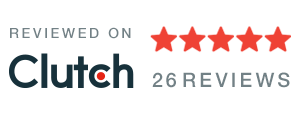Transcript: Hi everyone, Andrew Orlander here from Razor Rank. Today what we’re going to be talking about is the use of AI generated content on your website. There’s been quite a bit of excitement around this recently. What we’re going to be doing is talking about how it works, the uses, the risks, how you can use AI successfully in organic search, and how you shouldn’t use it in organic search, and I think that you’ll find this pretty interesting as we go. This is a talk that we just gave, or I just gave at the MTMP conference in Vegas just last week, so it is right up to date and relevant and I hope you enjoy it.
So, the first thing that we talked about is that many people have been experimenting with AI. It’s a great adjunct to your law practice and to your business in general if you’re not a lawyer, and we’re going to be talking about it right now.
Before we get started, I’m just going to give you the 30-second elevator pitch on who Razor Rank is and what we do. Razor Rank is a full-service digital agency. We do everything from technical SEO to complex paid media programs… our clients include the Gap, Intermix, Maui Jim, FTD Florists, Foot Locker and all their properties. But we also have a large contingency of lawyers and medium to small businesses, so not everybody is the Gap, we understand that. But we use our expertise and what we’ve learned as a technical SEO shop, and we use that very successfully for law firms. So, moving right ahead, let’s get into AI generated content.
What is ChatGPT?
First, what is ChatGPT? People have been hearing about it in the news, it’s very exciting, and it works on principle of a large language model. And what is a large language model? It is a foundational system that processes vast amounts of data. So here you have all the training data that goes into the large language model and the people from Open AI who developed this large language model fed in trillions and trillions of text documents. All kinds of research, practically the entire internet, Library of Congress, every text document that they could get their hands on went into the large language model. The large language model processes the information and text and basically analyzes the relationships between the words. In doing so, it knows what word should come next most of the time. So, it can predict, when you put a prompt in, what word should come next, and it can actually predict what the answer should be from the prompt request, and it’s very meaningful. Let’s say it’s very meaningful in most cases.
Prompts
So, let’s talk about prompts. All you have to do is put a prompt into ChatGPT, and Chat GPT will give you an answer. So let’s say we put a prompt in like this: “Write a page for my website called ‘Las Vegas Car Accident Lawyer,’ that will outrank Frank Smith’s Car Accident Lawyer page.” BAM, take that Frank Smith!
Well, it’s not quite as easy as that, because Frank Smith may have a better prompt than you do… because not all prompts are created equal, and the prompts you use can run deep. If you’ve been looking at this you may see the prompts that already exist out there… like, “Human written article, unique SEO optimized article,” and all these prompts exist but some of them, like, “Unique SEO optimized article” and aren’t that good.
Prompt Engineering
Some of them are pretty good but the prompts can run very deep. Here’s an example of a prompt template behind the scenes… you may see only the little prompt template blank at the bottom that says “put your keyword here.” But behind that is a prompt template that says things like, “act as a content writer, a professional in SEO… Use markdown language, use H2’s and one H1 and a bunch of H3’s, then use burstiness and perplexity, so that AI content detectors can’t recognize this as AI, etc.
You can use all these parts of the prompt to give you the output that you want. You may also realize that the outputs from ChatGPT are not exactly what you want, and you have to re-prompt and regenerate and tweak your prompts to get what you want.
So, the question is should I use AI generated content on my website? That is a really good question and I know that quite a number of people are already using AI content on their websites in various ways.
Be Very Careful
Our advice right now is be very careful… If you remember, back in the day, when the penguin algorithm update came out, and spammy links were suddenly identified, and all the people who were using outsourced link programs to spray their websites with hundreds or thousands of low-quality links? Suddenly Google was able to identify spammy links. One day everybody woke up and their website tanked! I know… I had over one hundred of my own websites at that point that were severely affected; some of them never to return. And then later Google came out with the ‘disavow tool,’ where you could actually say, “please forgive me for my spammy links,” and your site could come back to life.
However, if you have AI content all over your site and Google decides that it doesn’t like AI-generated content, you will not even be able to figure out which pages have it and which pages don’t.
So, I would be very careful using AI generated content on my good website if I want my website to be found in organic search.
Google’s Position on AI-Generated Content
What is Google’s position on AI-generated content? They’ve been saying this for quite a long time. When it comes to AI generated content, our guidance has been consistent for years. Using automation including AI to generate content with the purpose of manipulating rankings and search results is a violation of our spam policies.
This is their most recently their guidance, and they go on to say, “As explained, however content is produced, those seeking success in Google search should be looking to produce original high-quality people-first content demonstrating qualities of EEAT.”
If you’re familiar with this, they’re talking about Experience, Expertise, Authoritativeness and Trustworthiness. This is straight from webmaster guidelines.
Can Google Recognize AI Generated Content?
So going further, the question is, “Can Google recognize AI content?” We are going to tell you, yes, they can recognize AI content, and AI content detection tools already exist. There are many of them popping up you have Originality.ai, Writer, and others… all these already exist. Some of them are paid services, some of them are free. But you can bet that Google is going to be way better at this than they are, and Google is going to be on the lookout for spammy content and they will not like it. That is our position on AI generated content at this time for SEO.
There was a study that just came out on over 14,000 pages, done by Originality.ai, and they found that after analyzing all these pages for keywords, for rankings, and for human versus AI content. When they did their research, they found that a 1% higher human content score corresponded to an improvement of 2.65 positions in rankings. Now that is significant! So if you’re thinking that Google can’t figure out that you’re using AI content all over your website I would be very careful.
The study also found out in this study that the correlation stops at 25%, meaning once you got to 75% or more of human-generated content there was no appreciable corresponding difference in rankings. Which seems to suggest that they will allow a certain percentage (approx. 25%) of AI generated content without penalizing the site.
These are new studies that are coming out as we speak so keep your eye out if you’re watching the internet and what’s going on with AI.
What’s the Benefit of AI Generated Content Then?
All this being said, if there’s so much danger in having AI generated content on your site for SEO, then what’s the use of it? How is it good for me? If it’s dangerous and doesn’t help me rank… what’s in it for me?
Actually, there are many uses for AI in law firms and other types of businesses. Since we were talking at MTMP, some uses we spoke about, which the lawyers will know better than I do…
You can use ChatGPT to do legal research, look up case law, research regulations relevant to PI statutes, look up precedents… and do it in seconds. I mean it’s amazing what it can do. You can create documents, pleadings, motions, discovery requests, and other documents… it will save time. Client communications drafting emails and other correspondence. Providing updates or answers to questions, summarizing complex legal documents, such as medical records easily and quickly. Summarizing essential information into an outline, negotiations can be prepared.
But what we’re going to talk about right now is legal marketing for websites. You can create content for personal injury lawyer websites, generate content outlines, do keyword research, create ideations, and all kinds of great things that can come from AI content. For most uses it’s good; it just happens to be that for SEO you need to be really careful about using it.
The Advantages of AI-Generated Content
So, what are the advantages of AI generated content? First of all, you can use AI to create robust content outlines. In all honesty, when our team is going to create an important page for a client that we need to rank, what we do is, we go out to leading sites we find out what they have on their sites. What kind of length does the page have and what content do they have on their page. And then we put together an outline manually of what we think would be a better page than that page has. AI can write that outline and do the exact same as I just explained and do it quickly.
But would we write our content from the ChatGPT? NO! But would we use content ideation from AI, yes! So, content ideation, content outlines, removing writer’s block, researching topics, keyword research, faster workflows… these are significant advantages in having AI as part of your marketing approach and writing approach.
What are the Problems With AI Content?
There are definite risks here. First of all, AI content can be identified and it’s going to get more and more identifiable as time goes on. They’re closing up holes on paraphrasing and things like that, so don’t be fooled and don’t pretend that you’re trying to manipulate rankings. If you’re putting AI content all over your site, it cannot be used as-is; it will hurt your rankings.
Also, it can be incorrect, you need to fact check. AI will ‘hallucinate’ content and make reference to specific books to back up their statements… and you’ll find out later that those books don’t exist, although the authors do, AI makes up answers when it feels like it. You must fact check, as AI can provide misinformation and wrong information. It writes similar things quite often. Once you start using it, you’ll understand what I’m talking about. It goes off on the same bent on every page and you’ll need to keep changing your prompts and keep rewriting it into human copy, it goes off on tangents. It creates competing pages because it does tend to write the same thing and it must be humanized to be used for SEO, so those are some of the problems with AI content.
One more important thing: trustworthiness. This is going to become paramount. Just last weekend if you were reading the news, they were showing pictures of the Pope in a big white parka, and then they showed pictures of the Pope drinking a beer which you can see right here. People can ask ChatGPT to make up any content they want to create, whether it’s true or not, and they can use things like Mid-Journey and DALL-E to create images that don’t exist. So, what’s going to happen on the internet with all this creativity and all this AI generated content, you’re going to start to get to a point where people can’t even trust what they see on the internet. That’s why we’re talking about EEAT guidelines. Trust me, Google is not going to be serving up content to its users that is untrustworthy. That is the last thing they want to do to their empire. So, they are going to be ascertaining what is real and what is not to the best of their ability. So be warned and understand this push toward trustworthiness.
How do you Become Competitive in SEO, in a Landscape of AI Ideation?
First of all, here are some of the things that we’re doing at Razor Rank, and there’s a lot more, this is just the tip of the iceberg, to win in SEO in a sea of AI ideation.
First, content must be more robust. Because it’s easier to create outlines, it makes SEO content more competitive. More people will be able to be good at it so your content must be more robust. It’s raising the bar for you to be better. We utilize EEAT guidelines, we employ the principles of experience, expertise, authorship, and trustworthiness on our client sites. You must be using bylines and linking back to author bios, and you need to use human written content.
Even though we use AI for content ideation, we are using human written content to compete because we don’t want to lose positions because of the 1% demotion for non-human content. To compete, we use multimedia page development such as engagement videos and whiteboard videos. We use subject matter expert interviews to interview the people who are experts in their field, to get their angle on the topic, and to create bylines and quotes. So, this is another thing that we’ve been doing to out-compete. We monitor competitors very carefully to see what’s going on because we need to be nimble and overall, we need to produce useful content that engages the audience. You want to make your pages so interesting and so useful; people will stay on the page, and they will scroll to the bottom, and they will want to see what you have. You can’t just write a bunch of junk and get away with it, because people are going to be on the ideation part of AI.
If you’re struggling with how to optimize your site, if you’re struggling with how to rank, and how to generate leads from organic search… we can help. You know that SEO generated leads are the cheapest of all leads, but to get them you must put in the effort. If you’ve been struggling let us know. We’d be happy to have a chat with you about your strategy and tell you what the opportunities are, and what you can can do to do better.
Thanks for listening, over and out!



